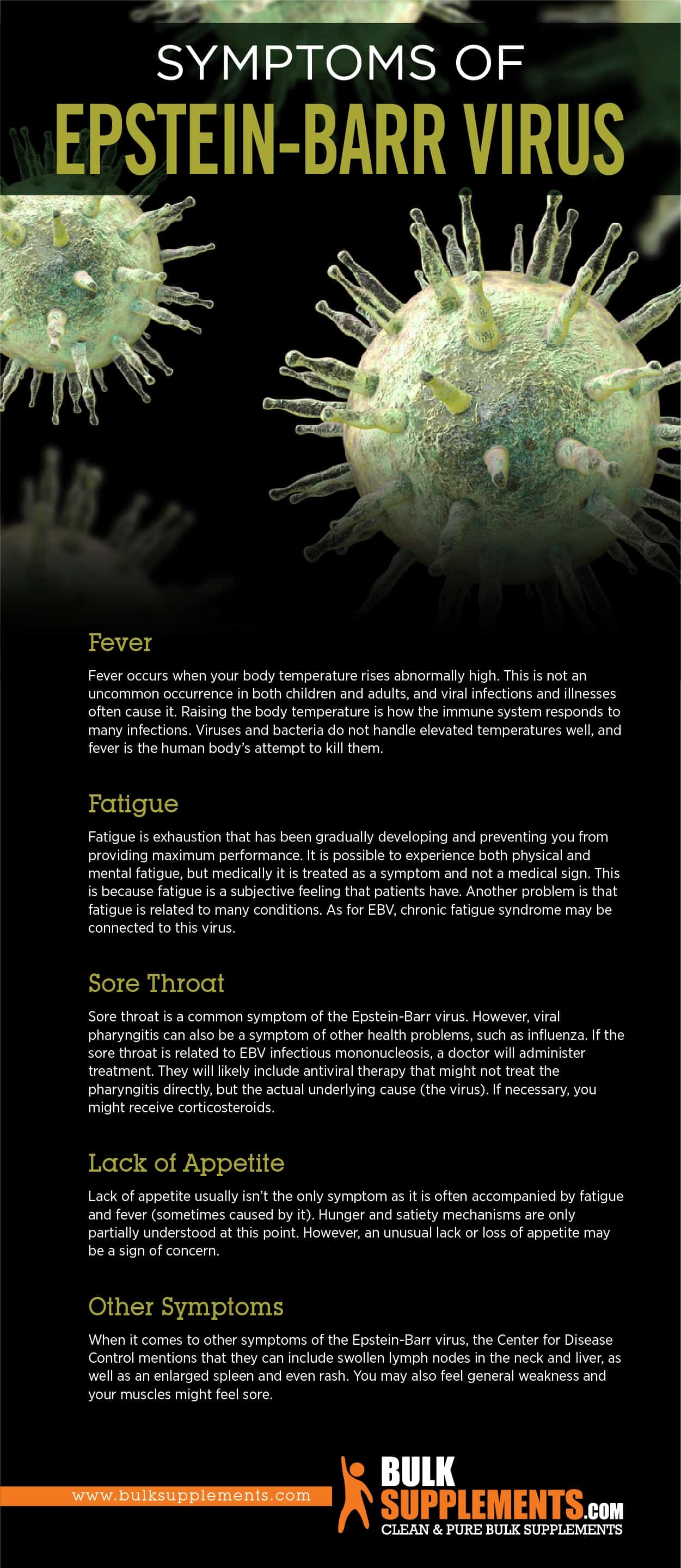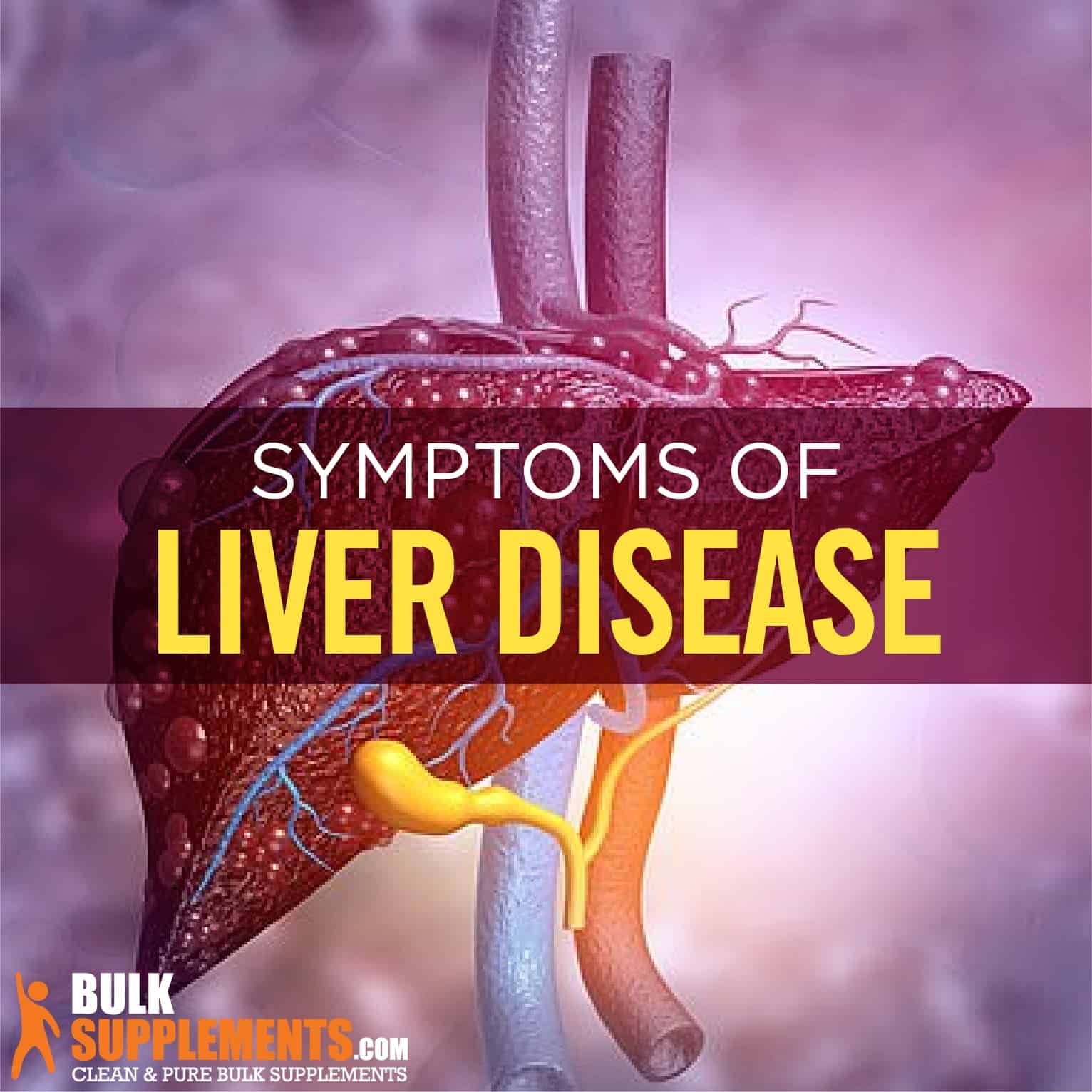Epstein-Barr Virus: Symptoms, Causes & Treatment

Epstein-Barr Virus
What is Epstein-Barr Virus?
The Epstein-Barr virus belongs to a group of herpes viruses. It is also called herpes-virus 4. While it does have some similarities with others in its family, it also has its fair share of differences.
EBV is a common occurrence throughout the world. It typically spreads through bodily fluid exchange. It may take several weeks after getting infected for the symptoms to become noticeable. In some cases, those infected may not even notice the virus as the symptoms are mild or do not appear at all.
The most common infection caused by the Epstein-Barr virus is mononucleosis. Many believe that EBV and mononucleosis (also called ‘mono’) are the same thing, but EBV is actually one of the potential causes of mono.
Epstein-Barr virus and multiple sclerosis may also be related. Some of the other conditions possibly connected to EBV include:
- Rheumatoid arthritis
- Systemic lupus erythematosus
- Ulcerative colitis and Crohn’s disease
- Type 1 diabetes
- Celiac disease
- Juvenile idiopathic arthritis
In most cases, any visible symptoms of the Epstein-Barr virus should withdraw within two to four weeks. The virus, however, won’t leave the body. It will only become dormant, which means those infected will still be a potential carrier. In rare situations, EBV can develop into the chronic active Epstein-Barr virus, which is a progressive disease that leads to the over-production of lymphocytes over an extended period.
The statistics indicate that the Epstein-Barr virus has infected about 90 percent of people in developed countries at some point in their lives. The majority of patients are typically under 25. The virus is relatively common in children.
Epstein-Barr Virus Symptoms
You may not notice the symptoms right away as it often takes time for them to appear. The symptoms may not be severe, but the chances are you will notice more than a couple of them showing up simultaneously.
Fever
Fever occurs when your body temperature rises abnormally high. This is not an uncommon occurrence in both children and adults, and viral infections and illnesses often cause it. Raising the body temperature is how the immune system responds to many infections. Viruses and bacteria do not handle elevated temperatures well, and fever is the human body’s attempt to kill them.
Fatigue
Fatigue is exhaustion that has been gradually developing and preventing you from providing maximum performance. It is possible to experience both physical and mental fatigue, but medically it is treated as a symptom and not a medical sign. This is because fatigue is a subjective feeling that patients have. Another problem is that fatigue is related to many conditions. As for EBV, chronic fatigue syndrome may be connected to this virus.
Sore Throat
Sore throat is a common symptom of the Epstein-Barr virus. However, viral pharyngitis can also be a symptom of other health problems, such as influenza. If the sore throat is related to EBV infectious mononucleosis, a doctor will administer treatment. They will likely include antiviral therapy that might not treat the pharyngitis directly, but the actual underlying cause (the virus). If necessary, you might receive corticosteroids.
Lack of Appetite
Lack of appetite usually isn’t the only symptom as it is often accompanied by fatigue and fever (sometimes caused by it). Hunger and satiety mechanisms are only partially understood at this point. However, an unusual lack or loss of appetite may be a sign of concern.
Other Symptoms
When it comes to other symptoms of the Epstein-Barr virus, the Center for Disease Control mentions that they can include swollen lymph nodes in the neck and liver, as well as an enlarged spleen and even rash. You may also feel general weakness and your muscles might feel sore.

Causes of Epstein-Barr Virus
The Epstein-Barr virus is present in bodily fluids. Contact with the infected saliva, blood or semen can make you a carrier. It is vital to note that those with a weak immune system may have a higher chance of getting infected.
Kissing and sex are two of the main ways that humans exchange bodily fluids. Although it may be less likely, it is possible to become infected by using the same glass as an EBV carrier.
The above mentioned causes might be the most common, but EBV also has some other risk factors (using someone else’s toothbrush, for example). Less commonly, it is possible to contract the virus through an organ transplant or via a blood transfusion.
Epstein-Barr Virus Remedies and Supplements
Specific EBV therapy doesn’t exist. However, there are ways to treat the symptoms and provide relief until the virus becomes dormant. Apart from getting a lot of rest and drinking plenty of fluids, you can consider some of the following supplements.
Vitamin C
Many consider vitamin C to be a crucial nutrient that can have multiple positive benefits on human health. It is primarily known for having strong anti-inflammatory and antioxidant properties. Vitamin C could play a crucial role in fighting flu and colds. It may also help to reduce fatigue, which may be of vital importance to those with EBV.
Other positive effects of vitamin C, which is also known as ascorbic acid, include boosting brain, bone and skin health, as well as improving your mood and preventing cognitive decline.
The recommended dosage of vitamin C differs for healthy persons and those whose immune system is under attack. If you want to support your immunity, you can go with the dosage of 1,000 mg daily or as agreed with your physician. If the powder is not your preferred choice, you can also use ascorbic acid capsules.
L-Lysine
Lysine is an essential amino acid that participates in the creation of proteins that help to strengthen your immune system. Many studies suggest that lysine can help to treat HSV-1, which is also a form of herpes. Lysine also has anti-inflammatory properties and can contribute to boosting your appetite.
SEE ALSO

Liver Disease: Symptoms, Causes & Treatment
When it comes to the recommended dosage, you should aim to take up to two capsules per day, which is 1,000 mg per day, or as directed by your physician. If the tablets are not your preferred way of taking lysine, you may also try the powdered version. Please note that you should consider taking lysine with other amino acids to optimize their effectiveness. If you take only lysine, you may compromise the effects of other amino acids.
Berberine
Berberine is a plant-sourced compound that is available in powder form. This particular formula was derived from the philodendron plants and contains additional HCL to improve absorption. The main reason why it could assist in treating mono and EBV symptoms is that it has antiviral properties that have proven particularly helpful in dealing with the herpes simplex virus.
The potential benefits of berberine do not stop there. The supplement can also assist in optimizing blood pressure, cholesterol and blood sugar levels. Additionally, it can support your immunity with the anti-inflammatory properties.
The recommended dosage of berberine is 1,000 mg per day unless your physician directs otherwise. Please note that you shouldn’t use the supplement for over three months unless your doctor approves.
Echinacea
Echinacea is a herb that has antiviral characteristics which may promote your immunity and help to deal with the EBV virus. The recommended dosage for echinacea is 450-900 mg per day.
Olive Leaf Extract
Olive leaf extract is a compound that has multiple benefits, including preventing virus replication and having antibacterial properties. That may help to deal with other bacteria to help the immune system to focus on dealing with EBV. The recommended dosage for olive leaf extract is 750 mg per day.
Beta-Glucan
Beta glucan can support the optimal functioning of the immune system, which may be vital in resisting infection. Stick to 250 mg of beta glucan as the daily dosage.
The Bottom Line
Epstein-Barr virus is from the herpes virus family and is transmitted through bodily fluids. You should contact your doctor if you are suspecting mono caused by EBV. They can arrange a test for mononucleosis to confirm the diagnosis. Most health professionals will conduct simple blood tests to establish EBV or mono.
If the diagnosis of the Epstein-Barr virus has been confirmed, prepare to be inactive for a couple weeks. During that period, you will treat the symptoms to experience relief and ensure that you stay hydrated. In most cases, EBV will withdraw and go dormant within two to four weeks. It is vital to note that you should rely on your doctor and contact them at any point when you have a medical concern.



